Lucky Luke: Sein Größter Trick
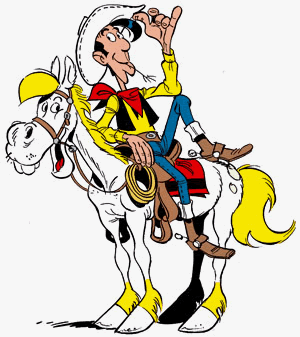
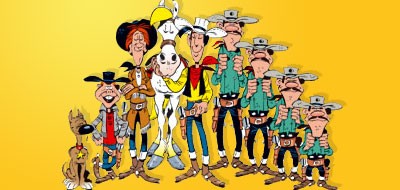
I started the Entertainment Discourse with this vaguely remembered character, Lucky Luke. I recall watching the serial cartoon,1 in which he lived in a dusty landscape, perpetually leaned up against a broken down shed with a single straw in his mouth. It was a comic world, but he played the straight man. I don't remember a single storyline from any of the many, many episodes I know I watched. I just remember the feel of this lanky animated fellow strolling laconically through a world of dirt and shades of tan. One birthday or sleep-over at a friend's house, we watched one of the several Lucky Luke films: Sein Größter Trick.
Rewatching Lucky Luke: Sein Größter Trick felt like watching it for the first time. Things did not start coming back to me; throughout, I remembered nothing more than Lucky Luke himself. The things I didn't remember, that didn't even feel familiar, included: the constant use of English for signs and character names; the animals' habit of breaking the 4th wall to speak into the camera (although they never speak to other characters); how funny the film is, as when Lucky Luke's horse shops for new shoes; and the story nesting within the frame of a song.
Strangely, though—or perhaps perfectly reasonably, given the tightening associative bonds of the MyStory—each of these things I don't remember feels important to me and the childhood I remember having. For example...
The constant use of English for signs and character names.
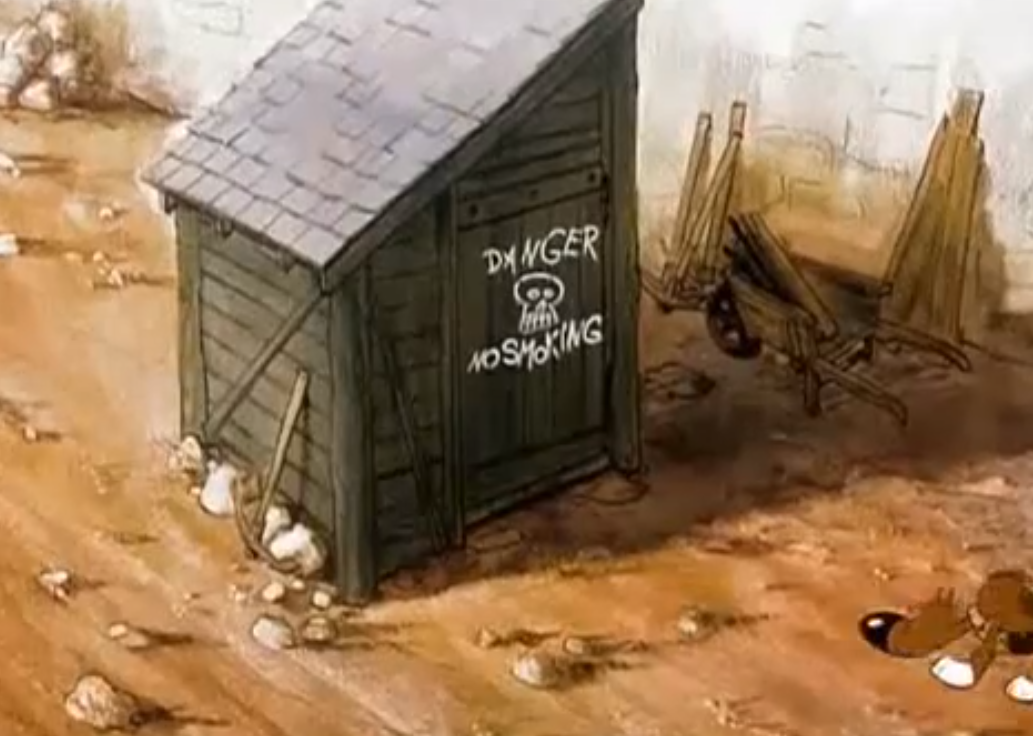
Until 8th grade, give or take a year in Alabama, my sister and I attended German schools in Europe. We spoke German at school, on the playground, in shops, and whenever our parents needed translators. At home, we spoke English. My parents are American Europhiles, and were very willing to learn German. My sister and I learned more quickly and more thoroughly, though; we were only five and six when the family first moved to Germany. The hodgepodge of language was never confusing for me and my sister. I don't remember ever transitioning consciously between German and English; the two may as well have been a single sign system.
No wonder I so enjoyed Lucky Luke, a cartoon that found absolutely nothing problematic about characters named Luke and Dalton and Wills speaking German to each other even as they pass by signs that read "No Smoking" and travel to places like "Brass City." Now that I am older and have grappled with the sense of not quite belonging to any one place or culture, the easy duality of Lucky Luke seems naive at best. Somebody here is appropriating somebody else's cultural symbols and stories, and messages are bound to be lost in translation.
Even as I write this critique, however, I can't help but be delighted by how wonderfully this cartoon suits my life: An American growing up in Germany, daily navigating two languages in speech and writing, eventually transplanting to the American Southwest. I've never been much for Westerns, so that part didn't stick, but I do love self-conscious dramatic moves...
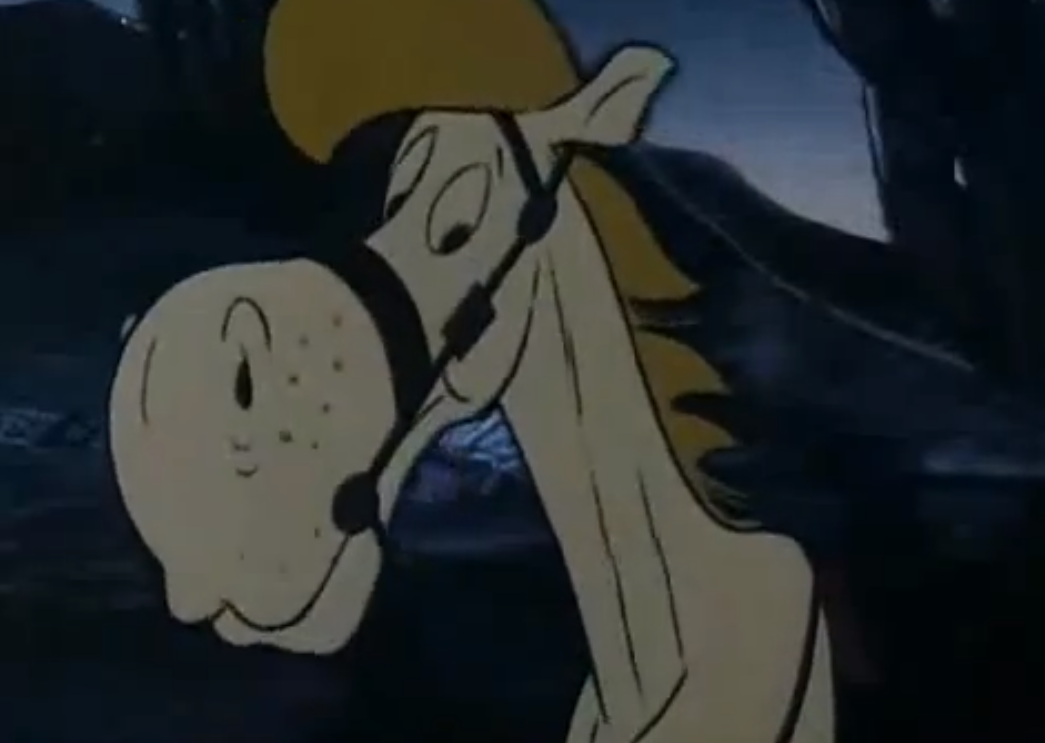
...like speaking into the camera...
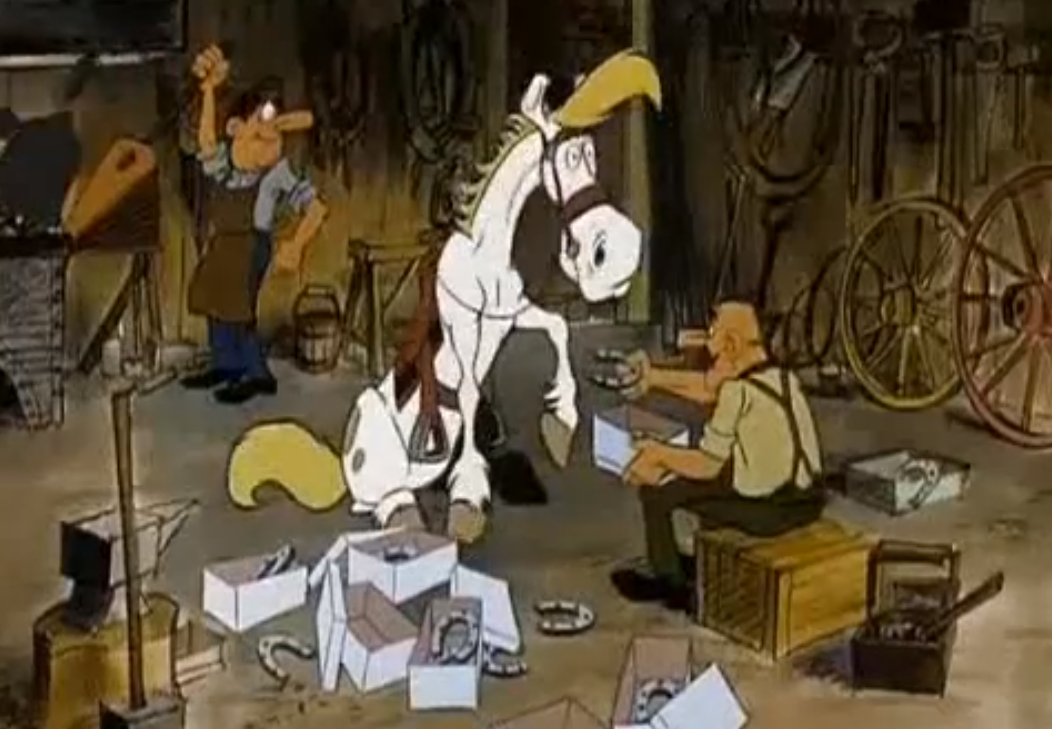
...and unexpected humor, such as a personified horse shopping for horseshoes...
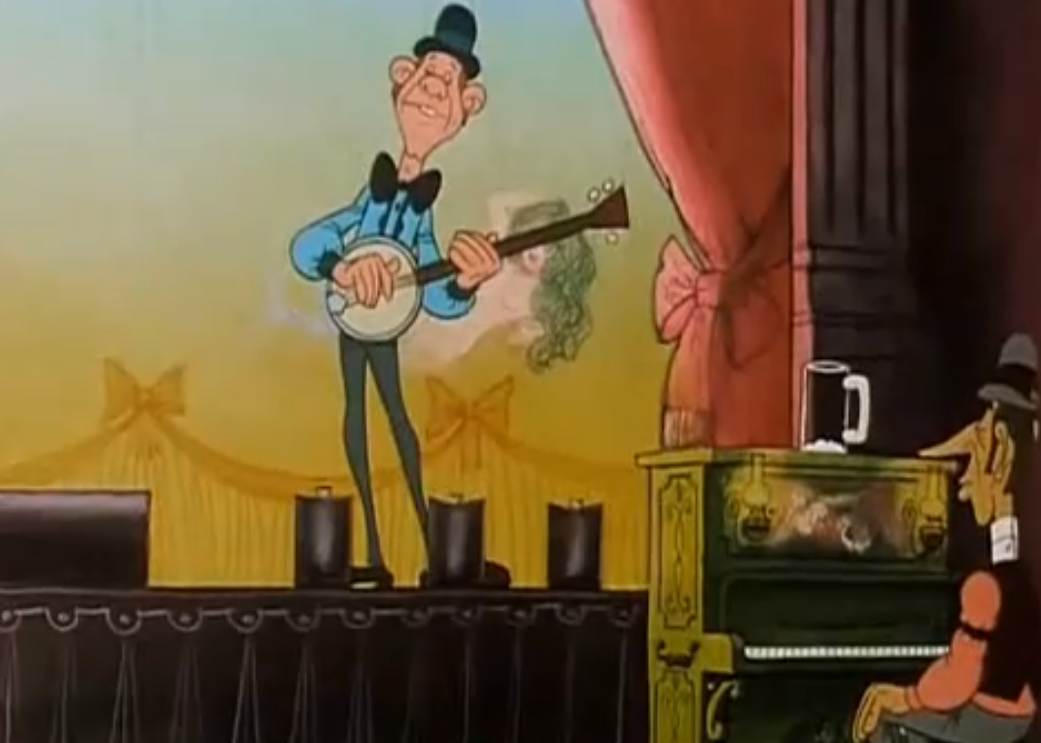
...and the many ways in which a narrative can be introduced, such as the classic storyteller frame.
- Research shows there was no serialized cartoon, only animated films. The memory is even less reliable that I had intially imagined.↑